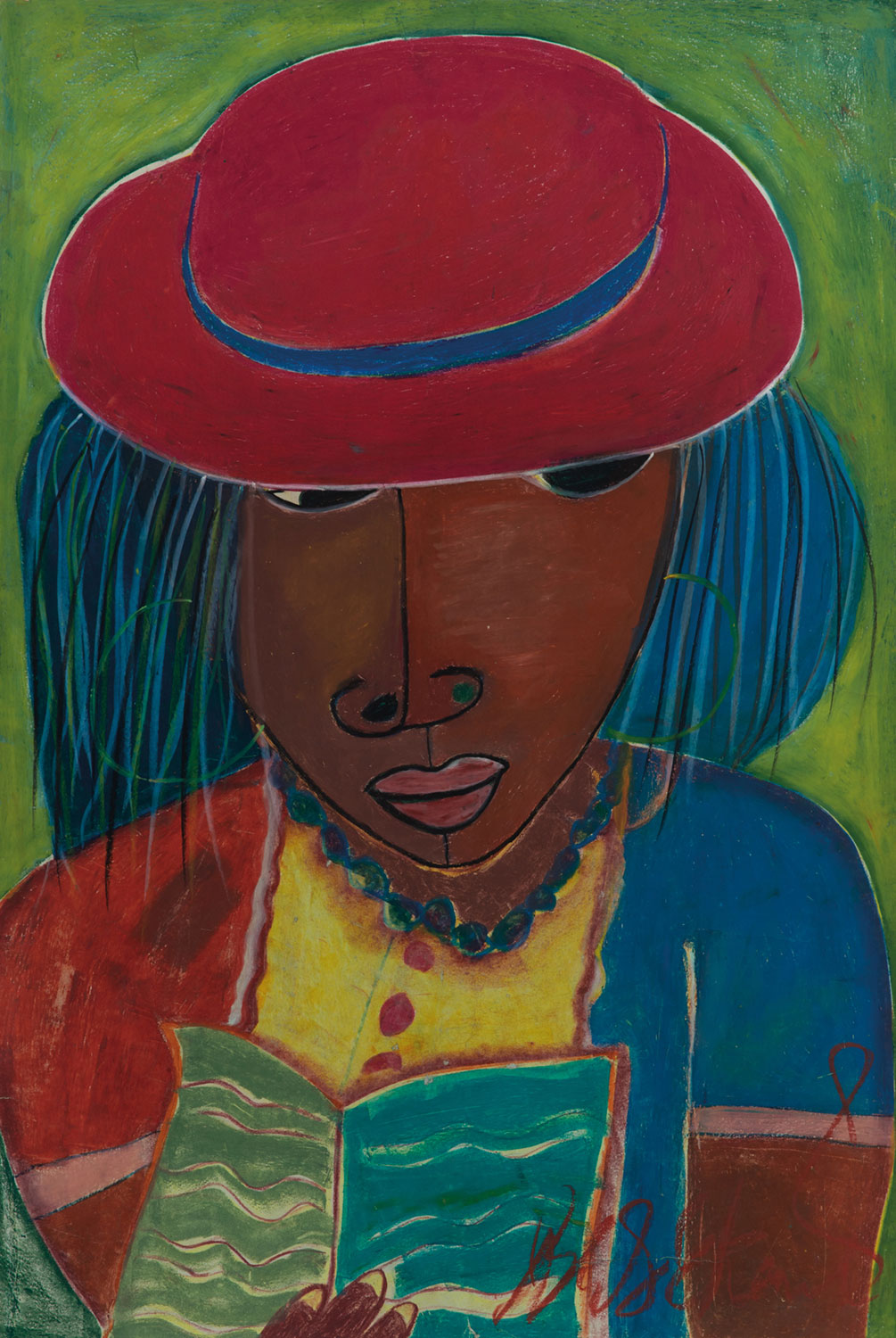Charles Sekano (South African, born 1943)
Untitled, undated
Signed ‘signature’ (lower right)
Oil pastel on paper
75.8 x 50.9 cm
Ksh 300,000–400,000
(US$ 2,750–3,650)
Sold Ksh 316,980
Provenance: private collection
Charles Sekano lived in Kenya from 1967 to 1997 and now lives in Pretoria, South Africa.
Born in Sophiatown, Johannesburg, Sekano’s youth was overshadowed by the consequences of Apartheid. Sophiatown was destroyed by the authorities and his family were forced into tribally segregated districts within Soweto. This process of dislocation lead to the early death of his father and to his decision to flee South Africa and exile himself in Kenya.
In Nairobi in the 1960s, he worked as a Jazz pianist in the multiracial bars and nightclubs. Whilst influences of Picasso and Braque’s Cubism, and Toulouse-Lautrec’s and Henri Rousseau’s poster art are clear in his work, Sekano has always rooted himself in the realities of cosmopolitan urban Africa.
The nightclubs and bars of Kenya, with their beautiful female clientele from diverse cultures across Africa, were his subject matter and remain his inspiration. Sekano is never moralistic, always humanistic – his works celebrate and preserve moments. In 1997, Sekano returned to a newly-liberated South Africa with mixed feelings, leaving behind a country he had grown to love, and re-entering a society that had largely forgotten him – the fate of many a returning exile.
Sekano has exhibited widely in Kenya, Holland, Germany, Japan and the USA. His works are in private collections across the world and in various museums including Volkekunde Museum, Frankfurt, and the Peabody Essex Museum, Massachusetts.


